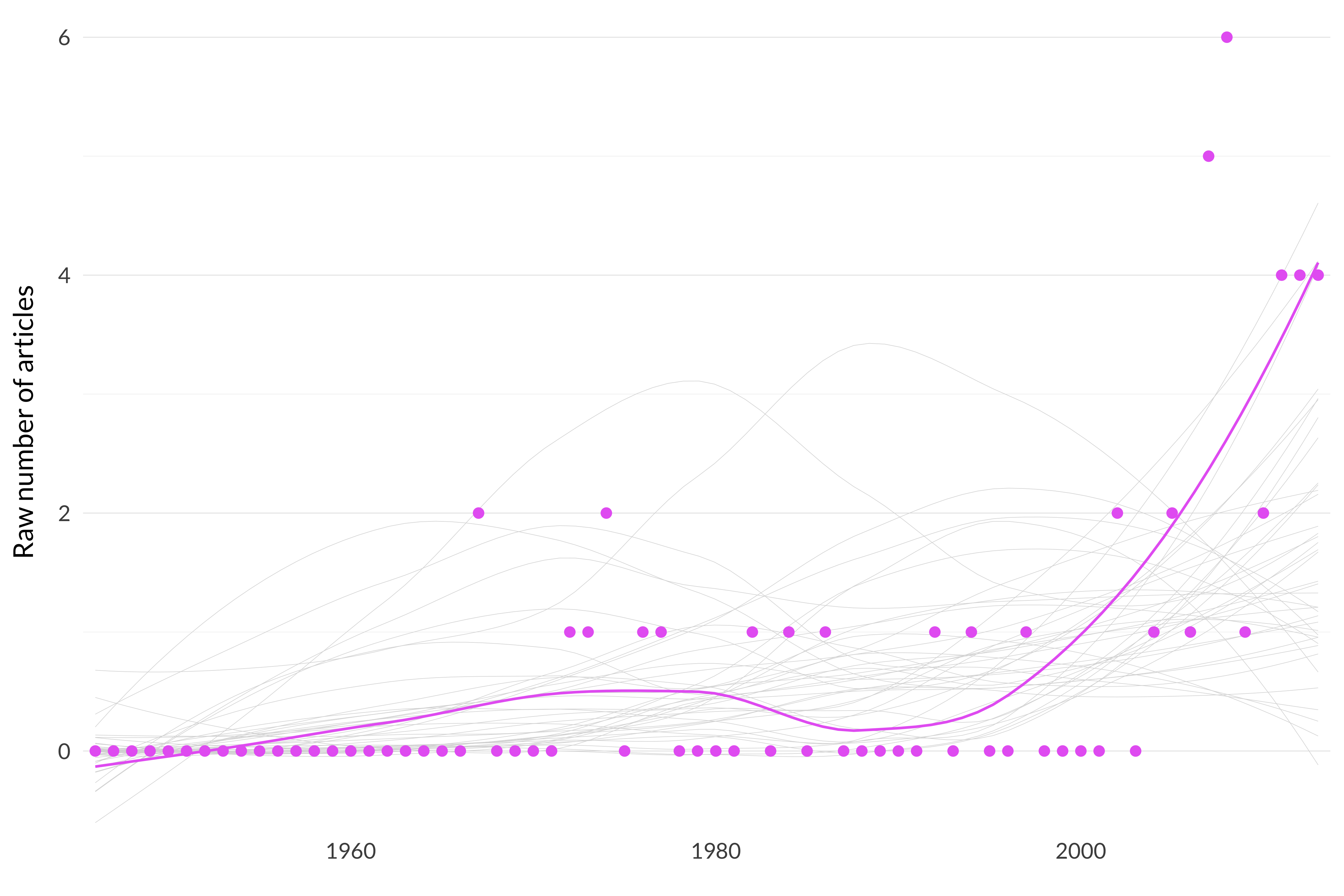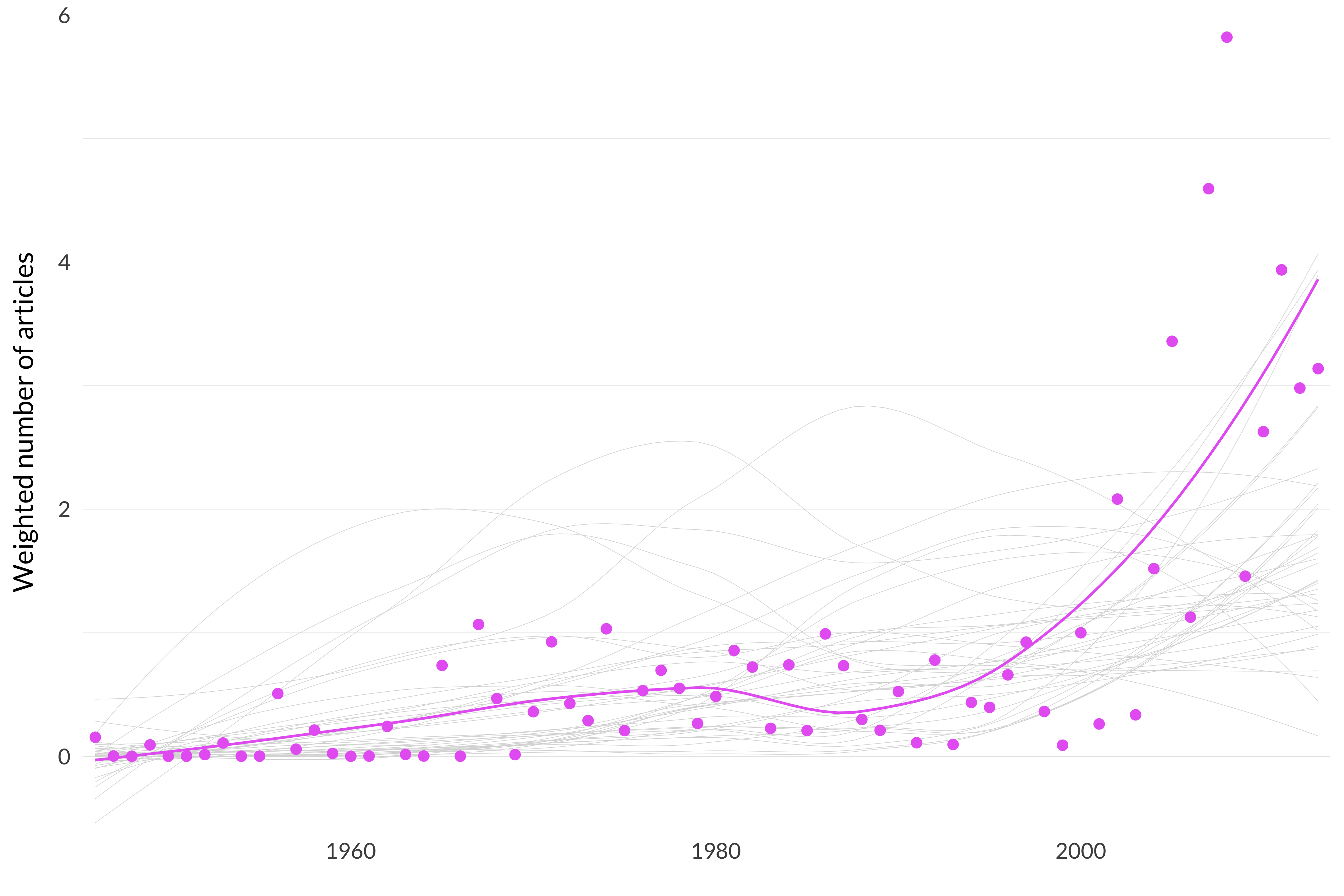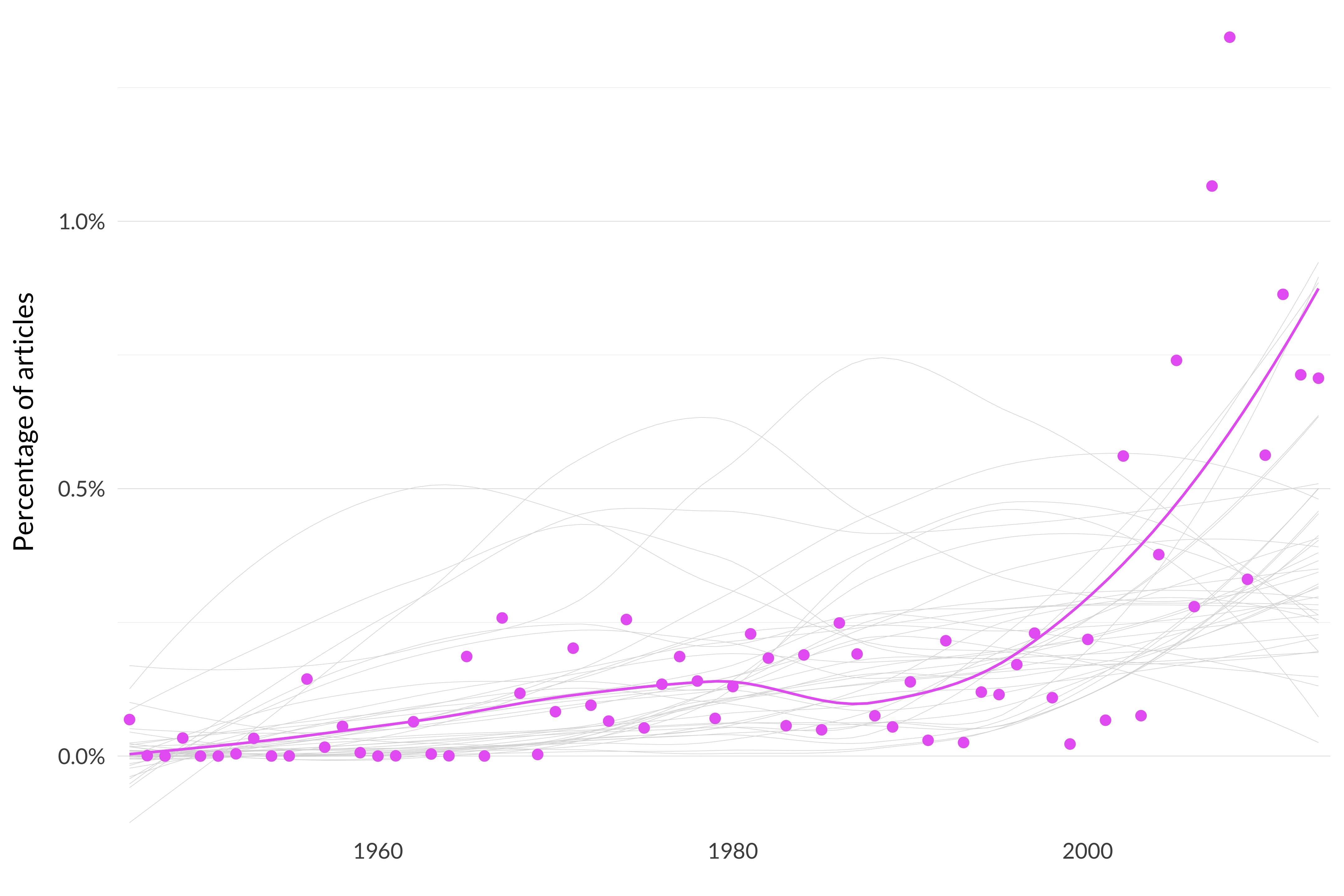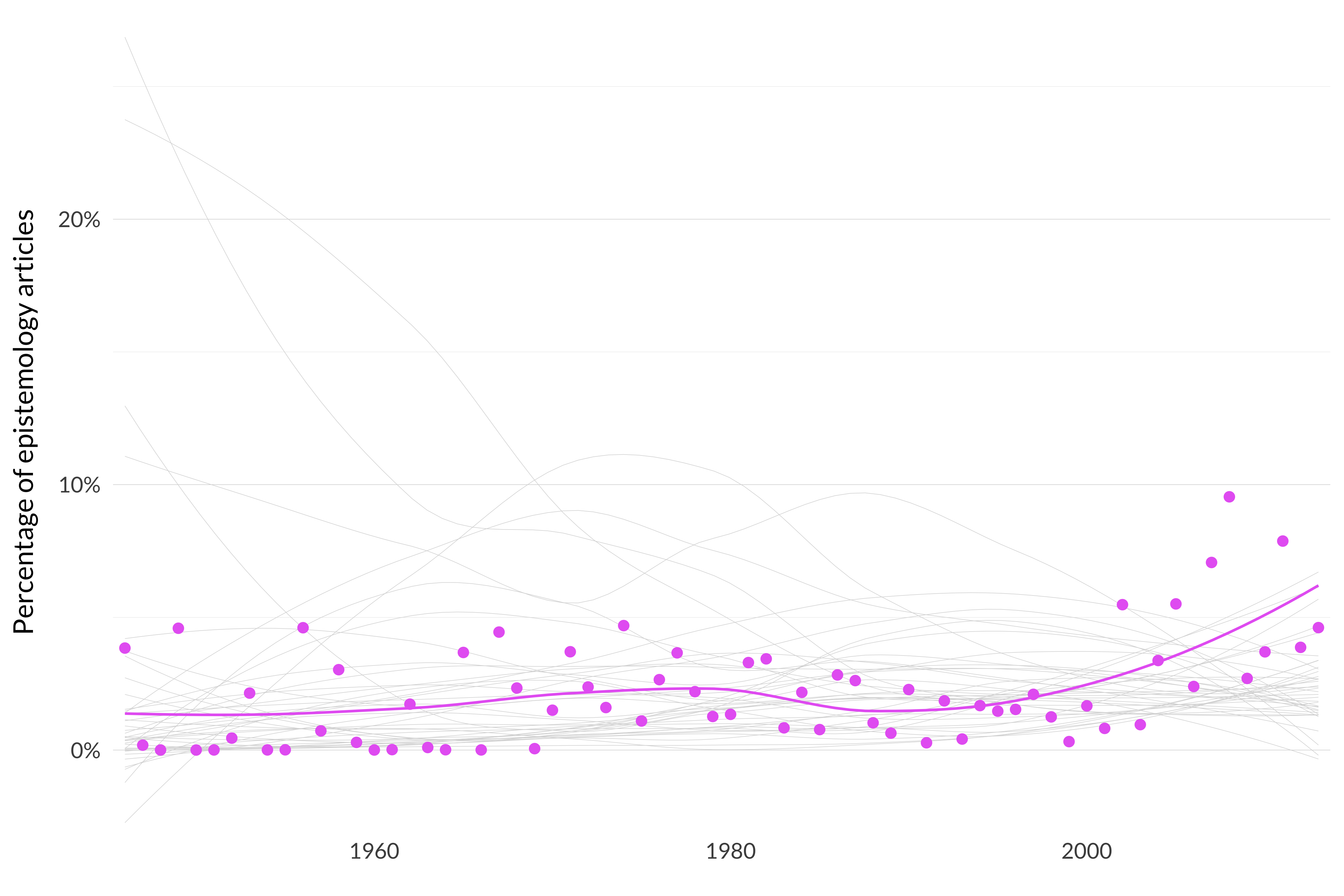6.33 Luck
Keywords: understanding, intuition, priori, sosa, success, easy, table, knowl, red, closure, edge, ability, knowledge, understand, animal
Number of articles: 46
Weighted number of articles: 53.48069

Figure 6.137: Raw number of articles in topic 33, luck.

Figure 6.138: Weighted number of articles in topic 33, luck.

Figure 6.139: Percentage of philosophy articles in topic 33, luck.

Figure 6.140: Percentage of epistemology articles in topic 33, luck.
Characteristic Articles
- Yuval Avnur, 2011, “Hawthorne on the Deeply Contingent”A Priori”,” Philosophy and Phenomenological Research 83:174–83.
- Jonathan L. Kvanvig, 2011, “Millar on the Value of Knowledge,” Proceedings of the Aristotelian Society (Supplementary Volume) 85:83–99.
- Thomas A. Blackson, 2007, “On Williamson’s Argument for ( \({\rm{i}}_i\) ) in His Anti-Luminosity Argument,” Philosophy and Phenomenological Research 74:397–405.
- Stewart Cohen, 2002, “Basic Knowledge and the Problem of Easy Knowledge,” Philosophy and Phenomenological Research 65:309–29.
- Peter J. Markie, 2005, “Easy Knowledge,” Philosophy and Phenomenological Research 70:406–16.
- Martijn Blaauw, 2008, “Epistemic Value, Achievements, and Questions,” Proceedings of the Aristotelian Society (Supplementary Volume) 82:43–57.
- Stewart Cohen, 2005, “Why Basic Knowledge is Easy Knowledge,” Philosophy and Phenomenological Research 70:417–30.
- Duncan Pritchard, 2008, “Radical Scepticism, Epistemic Luck, and Epistemic Value,” Proceedings of the Aristotelian Society (Supplementary Volume) 82:19–41.
- Duncan Pritchard, 2012, “Anti-Luck Virtue Epistemology,” Journal of Philosophy 109:247–79.
- Tim Black, 2008, “Solving the Problem of Easy Knowledge,” The Philosophical Quarterly 58:597–617.
Highly Cited Articles
- Stewart Cohen, 2002, “Basic Knowledge and the Problem of Easy Knowledge,” Philosophy and Phenomenological Research 65:309–29. (0.7942607)
- R. M. Sainsbury, 1997, “Easy Possibilities,” Philosophy and Phenomenological Research 57:907–19. (0.5525128)
- John Greco, 2012, “A (Different) Virtue Epistemology,” Philosophy and Phenomenological Research 85:1–26. (0.337444)